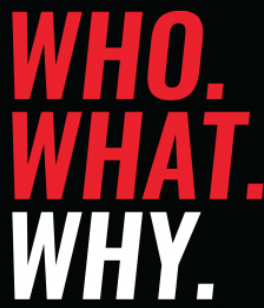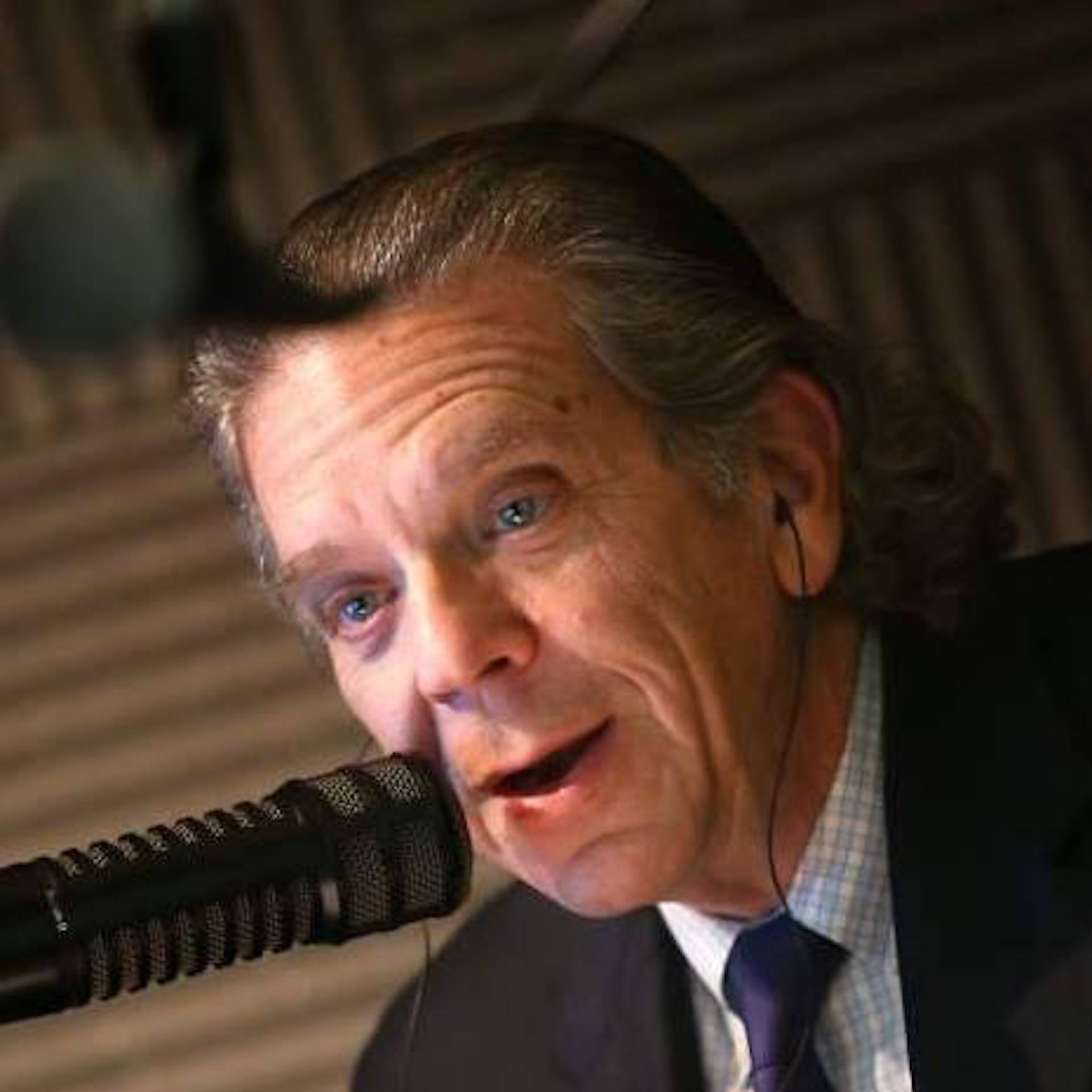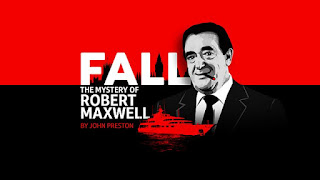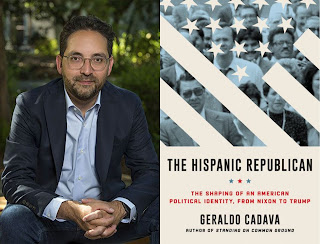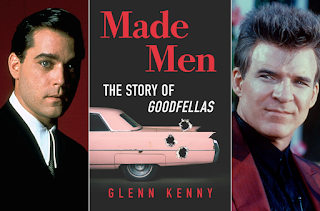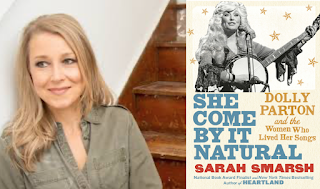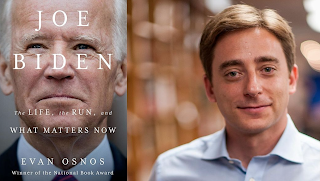Episodes
Tuesday Jul 06, 2021
We Are Our Information: A conversation with Caleb Scharf
Tuesday Jul 06, 2021
Tuesday Jul 06, 2021
And as we do so, how does it change us? Are we even aware of it, or like velocity and position, can it even be measured.
These are just some of the mind bending ideas put forth by renowned astrobiologist and the award-winning author Caleb Scharf in his latest book The Ascent of Information: Books, Bits, Genes, Machines, and Life's Unending Algorithm
Wednesday Jun 30, 2021
Amazon, Bezos and a Global Empire
Wednesday Jun 30, 2021
Wednesday Jun 30, 2021
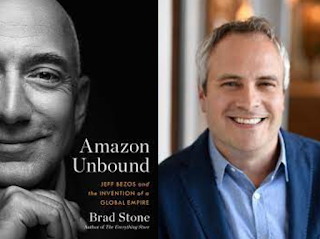 Back in 1953, it was reported that Charlie Wilson, the then head of General Motors, said that what’s good for General Motors was good for America. While that quote is a bit apocryphal, the idea was real. The notion that the success of any particular business was inextricably tied up with the success of the nation.
Back in 1953, it was reported that Charlie Wilson, the then head of General Motors, said that what’s good for General Motors was good for America. While that quote is a bit apocryphal, the idea was real. The notion that the success of any particular business was inextricably tied up with the success of the nation.
Perhaps in the 70’s it might have been said of Exxon. Today it might very well be said about Amazon.
The company has changed the way we shop...not insignificant in a nation where retail accounts for 6% of our GDP and 25% of our employment.
It has changed the way we think about the cloud, privacy, and electronic storage. It’s now changing transportation, and health care.
How did one company become so powerful and successful not just in one area….like GM or Exxon, but in multiple areas. The answer lies in understanding Amazon’s visionary founder Jeff Bezos.
Currently, the richest man in the world, the money should not obscure his vision, his talents and his place in the founder/CEO hall of fame.
Few understand Bezos better than Brad Stone. Bard is the author of Amazon Unbound: Jeff Bezos and the Invention of a Global Empire
Monday Jun 28, 2021
Our New Addiction to Outrage: The American Psychosis
Monday Jun 28, 2021
Monday Jun 28, 2021
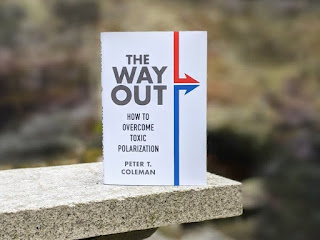 There once was a time when we were, if not united, at least we had a common set of cultural touchstones. Movies, TV, sports, even the three networks that delivered the evening news were part of a national town square that provided both water cooler conversation and comity. No more!
There once was a time when we were, if not united, at least we had a common set of cultural touchstones. Movies, TV, sports, even the three networks that delivered the evening news were part of a national town square that provided both water cooler conversation and comity. No more!
Over the past 40 years, all that has changed. The long tail of the internet coupled with the evolution of our politics has divided us as never before. Even COVID, an outside enemy that should have united us, has become a cultural and political cudgel. Ironically our collective anger over politics may now be the only thing we have in common, even as it’s devolved into trench warfare.
We are divided into superclusters of like-minded people. People so siloed that they are literally shocked that everyone does not think and vote as they do. In short, reality has become negotiable and we sort ourselves accordingly.
The weaponized culture wars lead to more enmity, disgust, and dehumanization of our opponents. One wonders if all the king’s horse and all the king’s men can ever put the Humpty Dumpty that is our political civility back together again. That's the reality that Peter T. Coleman looks at in The Way Out: How to Overcome Toxic Polarization.
Tuesday Jun 22, 2021
Reasons for Hope in Rural America: A Conversation with Gigi Georges
Tuesday Jun 22, 2021
Tuesday Jun 22, 2021
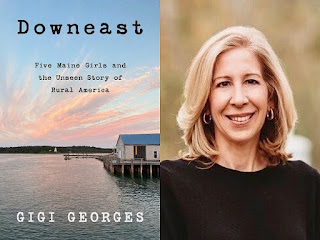 In an effort to make urban American understand rural America, particularly since the 2016 election, books about rural America have become almost a genre unto themselves. Works by J.D. Vance, Sarah Smarsh, Nancy Isenberg, James Fallows, Sara Kendzior and Nichols Kristoff, and others, have cast a class driven and almost apologetic eye on rural America.
In an effort to make urban American understand rural America, particularly since the 2016 election, books about rural America have become almost a genre unto themselves. Works by J.D. Vance, Sarah Smarsh, Nancy Isenberg, James Fallows, Sara Kendzior and Nichols Kristoff, and others, have cast a class driven and almost apologetic eye on rural America.
Certainly much is wrong there. In part as a result of years of external change and neglect at the hands of public policy makers. Places and towns where “everybody knows your names,” are no longer appreciated or reflective of the values that they injected into the nation's DNA.
But there really are things they can still teach us. Especially if we look at the best of what these towns have to offer, not the worst. What happens when young people choose to stay? When those with gifts and talent choose to redirect it into their community, rather than spend their intellectual capital in the attempt to escape. It's not a choice for all in places like Downeast, Maine, but it’s good that it’s a choice for some.
Those are the one that Gigi Georges introduces us to in debut book Downeast: Five Maine Girls and the Unseen Story of Rural America
Friday Jun 18, 2021
A Conversation with Chris Matthews:
Friday Jun 18, 2021
Friday Jun 18, 2021
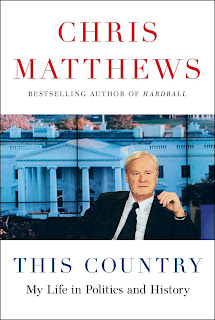 I think we can all stipulate that we are at a precarious moment in the relatively short history of American democracy. Even among those not following it on an hour by hour basis via an addiction to cable news, people are anxious. So many, on both the left and the right, are using millions of words to comment on the moment.
I think we can all stipulate that we are at a precarious moment in the relatively short history of American democracy. Even among those not following it on an hour by hour basis via an addiction to cable news, people are anxious. So many, on both the left and the right, are using millions of words to comment on the moment.
But perhaps the only way to really understand it is through the sharp lens of contemporary American political history. Particularly the years since the end of WWII.
Our divisions no matter how profound and how powerful, do not stand alone. They exist as a link in the broad scope of our contemporary political story. Without grasping that history, this moment is just noise.
Sure we can study history. Many great books have been written about these times. But those that have lived through all of it, who have paid attention to both the players and the events of this 75 year period are best qualified to try and figure out where we are today. Chris Matthews is certainly on of these. He writes about it in his new book This Country: My Life in Politics and History.
Tuesday Jun 08, 2021
The Secret Service and its Time of Reckoning: A conversation with Carol Leonnig
Tuesday Jun 08, 2021
Tuesday Jun 08, 2021
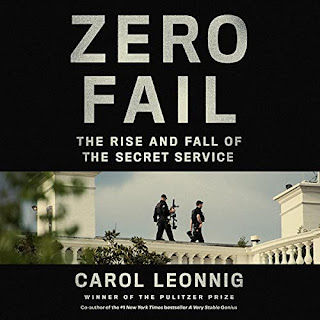 Think of all the things you have believed in that have recently been shattered. That the government might protect us from a pandemic. That Congress and our democracy were secure. That COVID came from a wet market in Wuhan, and that Bill Gates was a paragon of business and virtue. Now add to this growing list, the belief in quality and ethics of the United States Secret Service.
Think of all the things you have believed in that have recently been shattered. That the government might protect us from a pandemic. That Congress and our democracy were secure. That COVID came from a wet market in Wuhan, and that Bill Gates was a paragon of business and virtue. Now add to this growing list, the belief in quality and ethics of the United States Secret Service.With respect to the secret service, albeit some of our view comes from Hollywood. But surprise, not all secret service agents are Clint Eastwood, or Gerard Butler, or Nicholas Cage.
Now, as a result of the great investigative reporting of three time Pulitzer Prize winner Carol Leonnig we have a look inside the reality of life in the secret service.
While the service lived by the shibboleth of Zero Fail, today that goal exists inside a nation more divided than ever, more armed and angry than ever before, and a Secret Service that’s overworked, overtasked and even sometimes incompetent. It all part of Carol Leonnig's new book Zero Fail: The Rise and Fall of the Secret Service.
Monday Jun 07, 2021
What Happened In Wuhan? Why the Lab Leak Theory Has Gained Traction
Monday Jun 07, 2021
Monday Jun 07, 2021
 Fifteen months ago most of us knew very little about viruses. Today, spike proteins, mRNA, and monoclonal antibodies are household words.
Fifteen months ago most of us knew very little about viruses. Today, spike proteins, mRNA, and monoclonal antibodies are household words.
Investigative science journalist Nicholas Wade helped to turn the tide. His massive, in-depth article in Medium and in the Bulletin of Atomic Scientists opened the floodgates on the discussion. Wade joins me on this week’s WhoWhatWhy podcast.
Friday Jun 04, 2021
Campaigns Matter: A conversation with Edward-Isaac Dovere
Friday Jun 04, 2021
Friday Jun 04, 2021
 Ever since 1960, the campaign memoir has become almost a genre unto itself. Over the years many of these books have shaped our view of politics.
Ever since 1960, the campaign memoir has become almost a genre unto itself. Over the years many of these books have shaped our view of politics. Saturday May 29, 2021
Saturday May 29, 2021
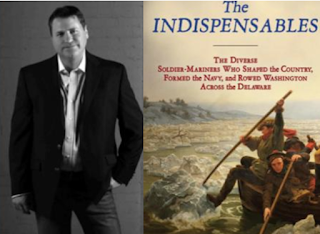 As divided as we are today about the state of our current politics and the debate about facts, it seems that at least we should be able to agree about our shared history. And yet even that is debated today.
As divided as we are today about the state of our current politics and the debate about facts, it seems that at least we should be able to agree about our shared history. And yet even that is debated today. Monday May 24, 2021
Why New York is New York
Monday May 24, 2021
Monday May 24, 2021
The great chronicler of cites Jane Jacobs said “that by its nature, the metropolis provides what otherwise could be given only by traveling; namely, the strange.”
Very few cities, other than New York offer that strangeness.The ability to round the corner and be surprised,
Craig Taylor get to the heart of this in New Yorkers: A City and Its People in Our Time
Sunday May 16, 2021
The Notorious Maxwells
Sunday May 16, 2021
Sunday May 16, 2021
And this is not just an American phenomenon, it’s a global one
The publisher Robert Maxwell is a keen example. Once celebrated for the publication of science knowledge around the world, for buying and rescuing the NY Daily News, for serving the good deeds of British Intelligence, he would turn out to be a common thief who who ripped off working men and women, and who mysteriously disappeared on his yacht…..And then there is his daughter Ghislaine.
It’s a story, like many that my guest John Preston tells, worthy of cinematic treatment. For the moment John tells the story in his new book Fall: The Mysterious Life and Death of Robert Maxwell, Britain's Most Notorious Media Baron.
Thursday May 06, 2021
We Need Uniters, Not Dividers: A Conversation with Tim Shriver
Thursday May 06, 2021
Thursday May 06, 2021
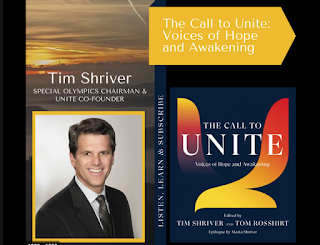 One year ago fear stalked the world. That fear created a common bond. We celebrated those on the front lines who walked into danger, we worried about our neighbors and felt kinship without those suffering halfway around the world.
One year ago fear stalked the world. That fear created a common bond. We celebrated those on the front lines who walked into danger, we worried about our neighbors and felt kinship without those suffering halfway around the world.
And yet, a year later we celebrate a return to normal, and yet our divisions have intensified. Normal is now represented by a mass shooting every week, and even wearing a mask in the name of health, safety and science divides us.
Twenty years ago 9/11 united us for a brief and shining moment. A year ago, it seemed that the pandemic, like war and depressions before, would positively imprint and unite us.
And yet in some ways it doesn't seem like we’ve learned very much. However, there are those that see hope, who see the light at the end of the proverbial tunnel.
Tim Shriver knows a lot about hope and perseverance, as the long time chairman of the Special Olympics. Now he has coedited a new volume entitled The Call to Unite: Voices of Hope and Awakening.
Thursday Apr 29, 2021
How the Rich Really Live and Why We All Should Care
Thursday Apr 29, 2021
Thursday Apr 29, 2021
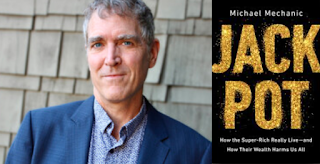 Almost as wide as the wealth gap in America is the gap in the way we view wealth. We look at it as a monolithic thing. Yet part of the country demonizes it, part covets it and part of the country manages.
Almost as wide as the wealth gap in America is the gap in the way we view wealth. We look at it as a monolithic thing. Yet part of the country demonizes it, part covets it and part of the country manages.
The same is true for kinds of wealth. Those that inherit it are different from those that win it, or those that start from nothing and create it for them and for others. All wealth is not the same
The bitch goddess success, William James said, demands strange sacrifices from those that worship her. Some people are willing to make those sacrifice and other are not
All of this speaks to the varieties of wealth in America. But are there similarities, are there patterns and behaviors of the wealthy, both good and bad, that we can understand? And if so, what does that knowledge do for us?
That’s what Michael Mechanic, a senior editor at Mother Jones, looks at in Jackpot: How the Super-Rich Really Live—and How Their Wealth Harms Us All.
Sunday Apr 25, 2021
Sunday Apr 25, 2021
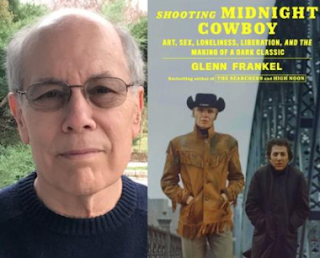 Great art, particularly movies at their best, reflect the times in which they were created. In 1968 political assination paralyzed the nation. In 1969 we were mired in Vietnam, New York City, was in decay and getting worse, The Stonewall Riots were energizing gay people, generational warfare, race riots were the norm, Woodstock reshaped and energized music and Richard Nixon was a year into his presidency.
Great art, particularly movies at their best, reflect the times in which they were created. In 1968 political assination paralyzed the nation. In 1969 we were mired in Vietnam, New York City, was in decay and getting worse, The Stonewall Riots were energizing gay people, generational warfare, race riots were the norm, Woodstock reshaped and energized music and Richard Nixon was a year into his presidency.
Is it any wonder that the most important film of that year would be a dark, bleak film that pushed the limits of sexuality on screen and would go on to be the first X-rated film to win an Academy Award. The film was Midnight Cowboy.
My guest Pulitzer Prize-winning journalist Glenn Frankel defines the terms and history of the film in Shooting Midnight Cowboy: Art, Sex, Loneliness, Liberation, and the Making of a Dark Classic
My conversation with Glenn Frankel:
Wednesday Apr 21, 2021
The Founding Mothers of NPR
Wednesday Apr 21, 2021
Wednesday Apr 21, 2021
 Origin stories are usually part myth, part apocryphal and they often come to define the culture and sometimes the products of the companies themselves. What they always do is to reflect the dreams and perceptions of the founder.
Origin stories are usually part myth, part apocryphal and they often come to define the culture and sometimes the products of the companies themselves. What they always do is to reflect the dreams and perceptions of the founder.
The business of news and media is no different. The founders of our great news brands all have a story to tell.
Such a powerful origin story is the founding visions of National Public Radio and the extraordinary women who gave it life. These women didn't invent NPR, anymore than many tech found invented their technology. What they did do is give it shape, life and a reason for being, and in so doing assured its growth and survival. These women, Susan Stamberg, Linda Worthhieer, Nina Totenberg and Cokie Roberts are the subject of new joint biography by Lisa Napoli entitled Susan, Linda, Nina, and Cokie: The Extraordinary Story of the Founding Mothers of NPR
Monday Apr 19, 2021
Toxic Masculinity In An Oil Boomtown
Monday Apr 19, 2021
Monday Apr 19, 2021
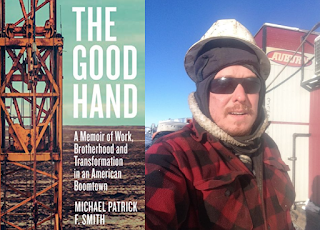 The nature of work in America has changed. Good paying jobs in the manufacturing sector have been diluted, the service sector has exploded, and the gig economy is not just about Uber and Postmates. Today, even hard, brutal work in the oil fields has been gigafide.
The nature of work in America has changed. Good paying jobs in the manufacturing sector have been diluted, the service sector has exploded, and the gig economy is not just about Uber and Postmates. Today, even hard, brutal work in the oil fields has been gigafide.
For the men caught up in this change the price is high, but so are the lessons and yes, even the rewards.
Michael Patrick F. Smith is a folk singer and playwright who made the dramatic move from Williamsburg, Brooklyn to the booming oil fields of Williston North Dakota in order to participate in what he thought would be a modern day gold rush.
What he learned tells us a lot about work, men, and America today. He writes about it in The Good Hand: A Memoir of Work, Brotherhood, and Transformation in an American Boomtown
Wednesday Apr 07, 2021
Elon Musk IS Leading Us Into The Future
Wednesday Apr 07, 2021
Wednesday Apr 07, 2021
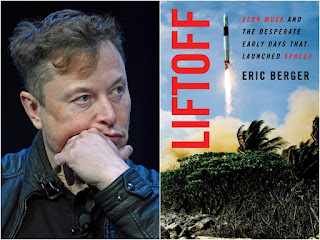 Someone once said that the best way to predict the future is to invent it. In many ways that’s been the story of scientific progress. It seems there is always someone that leads us into the future. Someone whose vision and entrepreneurship and obsessive drive combine to turn the next big idea into the next big thing.
Someone once said that the best way to predict the future is to invent it. In many ways that’s been the story of scientific progress. It seems there is always someone that leads us into the future. Someone whose vision and entrepreneurship and obsessive drive combine to turn the next big idea into the next big thing.This has been true from Franklin, to Edison, from Henry Ford to Thomas Watson, from Bill Gates to Steve Jobs, and today Elon Musk is the inheritor of that mantel.
Electric cars, commercial space travel, high speed transportation and even new forms of education are all part of the vision that Musk sees, and his vision may be on its way to become our reality.
As we all know Musk disruption of the automotive industry is full blown. What we may not fully understand is the way in which Musk, though Space X, is disrupting the aerospace industry, how we talk about space exploration, space travel and simply what a rocket is and does.
Aerospace journalist Eric Berger captures Musk's look into the future in Liftoff: Elon Musk and the Desperate Early Days That Launched SpaceX
Friday Apr 02, 2021
Imagining the Next World War : 2034
Friday Apr 02, 2021
Friday Apr 02, 2021
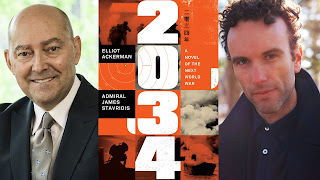 There was once a time when we didn’t think a global pandemic was possible in the 21st century. The events of 9/11 took us by surprise as they did at Pearl Harbor and Midway.
There was once a time when we didn’t think a global pandemic was possible in the 21st century. The events of 9/11 took us by surprise as they did at Pearl Harbor and Midway.
Yet all of these tragic events were imaginable and some aspects of them even made their way into fiction, long before they happened.
They remind us that events like a pandemic or a world war are mostly at core, a failure of human imagination. Imagination which should be our first line of defense in preparing for our eventual future.
That is what distinguished Admiral James Stavridis and former Marine and award winning author Elliot Ackerman have given us in 2034: A Novel of the Next World War
My conversation with Admiral James Stavridis and Elliot Ackerman:
Monday Mar 29, 2021
Come Fly With Me: The World of The Pan Am Stewardess Before "Me Too"
Monday Mar 29, 2021
Monday Mar 29, 2021
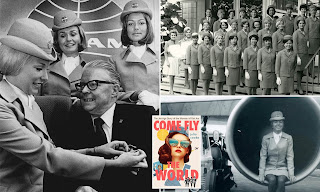 Those of you that are old enough, will remember when people got dressed up to fly. When having a meal onboard, especially on a transcontinental flight was like dining in a fine restaurant. When inflight service was more than peanuts and admonitions about the size of carry on bags.
Those of you that are old enough, will remember when people got dressed up to fly. When having a meal onboard, especially on a transcontinental flight was like dining in a fine restaurant. When inflight service was more than peanuts and admonitions about the size of carry on bags.
It was also a time when those that provided that inflight serve, were a different breed than Cassie Bowden in The Flight Attendant. It was an era when air travel was awash in glamor not the horrors of today.
The flight attendants or stewardess, as they were known, were a select breed. Especially for global airlines like Pan Am. They had to have the right look, the right BMI, the right education, speak more than one language and abide by a strict dress code. By today's standards the requirement would probably generate a class action discrimination or “me too” lawsuit that would put the airline out of business.
This is the retro world that Julia Cooke takes us into in Come Fly the World: The Jet-Age Story of the Women of Pan Am My conversation with Julia Cooke:
Monday Mar 22, 2021
Monday Mar 22, 2021
 It’s been a while since the British monarchy was so front and center in our consciousness. The Crown, on Netflix, and Meghan and Harry have pulled back the curtain on the sometimes romantic notion of royalty. But more importantly, it’s also given us a look into what’s been called The Firm or The Institution, the British monarchy and its wider political economies of wealth and power. Because behind the scenes is simply a corporation, engaged in capital accumulation, profit extraction, labor relations, national and international finance arrangements, and a network of legal status, all of which converge with, and impact on, contemporary Britain.
It’s been a while since the British monarchy was so front and center in our consciousness. The Crown, on Netflix, and Meghan and Harry have pulled back the curtain on the sometimes romantic notion of royalty. But more importantly, it’s also given us a look into what’s been called The Firm or The Institution, the British monarchy and its wider political economies of wealth and power. Because behind the scenes is simply a corporation, engaged in capital accumulation, profit extraction, labor relations, national and international finance arrangements, and a network of legal status, all of which converge with, and impact on, contemporary Britain.
Prince Philip, the husband of the Queen, and the Duke of Edinburgh, is quoted to saying back in 1969 that “It’s a misconception to imagine that the monarchy exists in the interests of the Monarch. It doesn’t.”, he said “It exists in the interest of the people.” In fact, history tells us that nothing could be further from the truth. The monarchy is more precisely, in the words of the late Christopher Hitchens, “What you get when you found a political system on the family values of Henry VIII.”
To bring all of this in perspective, I’m joined by the right honorable Norman Baker. Norman Baker was a Member of Parliament from 1997 to 2015, and established a reputation as one of the most persistent parliamentary interrogators in the modern House of Commons.
Thursday Mar 18, 2021
Frida Kahlo and the Timelessness of Her Work and Her Ideas
Thursday Mar 18, 2021
Thursday Mar 18, 2021
 Racial identity, socialism, the role of art in society, the responsibilities of artists and the position of the artist in popular culture. These subjects which sound like they are taken from today's headlines are also part of the life of Frida Kahlo.
Racial identity, socialism, the role of art in society, the responsibilities of artists and the position of the artist in popular culture. These subjects which sound like they are taken from today's headlines are also part of the life of Frida Kahlo.My conversation with Celia Stahr:
Thursday Mar 11, 2021
Coffee, Globalization and and Why We Care About A Hill of Beans
Thursday Mar 11, 2021
Thursday Mar 11, 2021
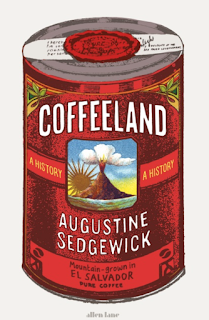 While the world has changed in so many ways lately and turned most of our routines upside down, the one constant I suspect for many is their ritualistic morning coffee. For the moment it may not be in your favorite coffee shop, but nonetheless, the magic elixir helps start each day and power it along with consistency as the uncertain future unfolds.
While the world has changed in so many ways lately and turned most of our routines upside down, the one constant I suspect for many is their ritualistic morning coffee. For the moment it may not be in your favorite coffee shop, but nonetheless, the magic elixir helps start each day and power it along with consistency as the uncertain future unfolds.But how did Coffee of all things become not just our universal drug of choice, but an essential lubricant in connecting us to each other and to the world?
It’s a story that begins in the volcanic highland of El Salvador and is often as complex as the taste of your hand-selected organically grown coffee beans. This is the story that Augustine Sedgewick tells in Coffeeland: One Man's Dark Empire and the Making of Our Favorite Drug.
My conversation with Augustine Sedgewick:
Monday Mar 01, 2021
Rethink Everything You Know About Policing
Monday Mar 01, 2021
Monday Mar 01, 2021
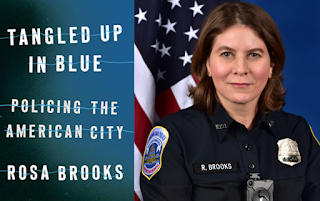 Georgetown law professor Rosa Brooks was working at the Pentagon when she heard about the D.C. Metropolitan police corp program. Intrigued, much to the consternation of friends and family she joined up. Suddenly she had a badge, a gun, a uniform and a whole lot of academic ideas about cops, criminal justice, law enforcement and what it means to protect and to serve.
Georgetown law professor Rosa Brooks was working at the Pentagon when she heard about the D.C. Metropolitan police corp program. Intrigued, much to the consternation of friends and family she joined up. Suddenly she had a badge, a gun, a uniform and a whole lot of academic ideas about cops, criminal justice, law enforcement and what it means to protect and to serve.
Suddenly she was over and inside the blue wall. It was as if she was going into another country. She had to learn a new culture, a new language, and even her family feared not only for her safety, but that she’d be somehow co opted by the journey.
What she found should radically change how we think about police and policing in America. Hint, it’s not anything that is part of our current rhetoric. She spells it all out in Tangled Up in Blue: Policing the American City
My conversation with Rosa Brooks:
Friday Feb 19, 2021
Where Is The Information We Have Lost In Data
Friday Feb 19, 2021
Friday Feb 19, 2021
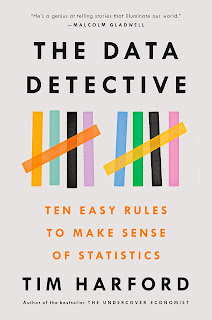 During the past year, perhaps a year like no other year, we have been bombarded with statistics. Covid cases, numbers of deaths, positivity rates and flattening the curve. Add to this an election and polling data that drowned us in information.
During the past year, perhaps a year like no other year, we have been bombarded with statistics. Covid cases, numbers of deaths, positivity rates and flattening the curve. Add to this an election and polling data that drowned us in information. Monday Feb 15, 2021
Mike Nichols: A Life
Monday Feb 15, 2021
Monday Feb 15, 2021
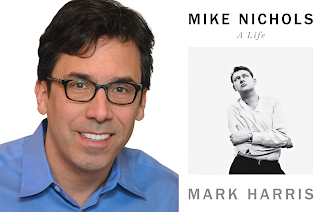 Amidst the cacophony of social and cultural noise that’s all around us, we have too often neglected the role of the arts in shaping who we are and how we might be better, or at least different.
Amidst the cacophony of social and cultural noise that’s all around us, we have too often neglected the role of the arts in shaping who we are and how we might be better, or at least different. Monday Feb 08, 2021
Why The Exploration Of Space Should Still Matter
Monday Feb 08, 2021
Monday Feb 08, 2021
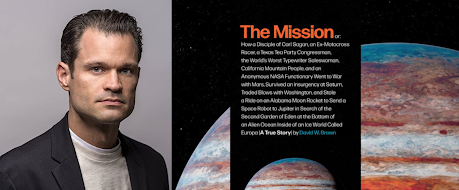 Once it was the moon. Today Mars is the holy grail of space exploration. In the coming months three missions, one from the US, one from Taiwan and one from the UAE will be approaching and/or landing on Mars. Next year Russia, Japan, and India have missions planned. It could get crowded up there!
Once it was the moon. Today Mars is the holy grail of space exploration. In the coming months three missions, one from the US, one from Taiwan and one from the UAE will be approaching and/or landing on Mars. Next year Russia, Japan, and India have missions planned. It could get crowded up there! Tuesday Feb 02, 2021
Tuesday Feb 02, 2021
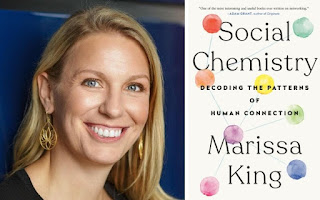 As we work the phones and Zoom calls, it makes you wonder if physical connection is even necessary? Has the pandemic given us a new normal. How has it impacted things like conversation in the hallways or parking lot, a lunch meeting or a discussion over a glass of wine.
As we work the phones and Zoom calls, it makes you wonder if physical connection is even necessary? Has the pandemic given us a new normal. How has it impacted things like conversation in the hallways or parking lot, a lunch meeting or a discussion over a glass of wine. Monday Jan 25, 2021
Monday Jan 25, 2021
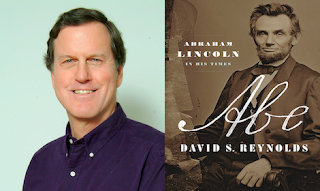 For some of us, a sense of history is the only thing that gets us through each day. As divided as we are, as angry as we are, as exhausted as many of us are, history tells us that we’ve been here before.
For some of us, a sense of history is the only thing that gets us through each day. As divided as we are, as angry as we are, as exhausted as many of us are, history tells us that we’ve been here before. Tuesday Jan 19, 2021
The Hispanic Republican Vote
Tuesday Jan 19, 2021
Tuesday Jan 19, 2021
Friday Jan 08, 2021
It's Time For America to Create a New Origin Story
Friday Jan 08, 2021
Friday Jan 08, 2021
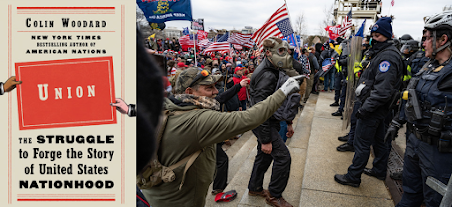 If you follow business, you know that part of the lure of every company is its founding story or myth.
If you follow business, you know that part of the lure of every company is its founding story or myth. Wednesday Dec 30, 2020
Understanding Goodfellas and the Trump Henchman
Wednesday Dec 30, 2020
Wednesday Dec 30, 2020
immediately to mind. The reality truly reflects the sometimes magisterial and always violent family saga of the large organized crime family
But what about for the foot soldiers that have been corrupted by Trump? Those who have taken on his imprimatur to lie, steal and cheat. To understand them, we need to go back 30 years and look at Nicholas Pileggi's Wise guys, later to become the movie Goodfellas.
The movie was iconic and perhaps we could have learned form from it. Glenn Kenny digs keep into the movie, and those lessons in his book Made Men: The Story of Goodfellas.
Saturday Dec 26, 2020
The Dead Are Arising: The Life of Malcolm X
Saturday Dec 26, 2020
Saturday Dec 26, 2020
 There is no more significant issue than race in America. If perplexed our founders, it flies in the face of the notion of American exceptionalism, it clouds our dealing with the other nations, and it's an underlying current throughout American political history...right up to this very moment.
There is no more significant issue than race in America. If perplexed our founders, it flies in the face of the notion of American exceptionalism, it clouds our dealing with the other nations, and it's an underlying current throughout American political history...right up to this very moment.The Black lives matter movement, profound and successful as it is at this moment, is simply part of the arc of history trying to bend toward justice.
It’s impossible to understand that without understanding the work and the ideas of so many who have shaped the movement. And Malcolm X stands amidst the pantheon of those
Over the years many have tried to understand Malcolm X and his politics, his philosophy, his evolution and his influence on the civil rights movement. Certainly his speeches and autobiography are part of that cannon. But to fully understand the man, we need Les Paynes biography The Dead Are Arising: The Life of Malcolm X
Thirty years in the writing, Les Payne died in 2018 and the book was completed by his daughter Tamara Payne who was also it’s co-author and his principal researcher.
It is the winner of this year's National Book Award for Non-Fiction.
Wednesday Dec 16, 2020
Broke is the definition of every aspect of American medicine today
Wednesday Dec 16, 2020
Wednesday Dec 16, 2020
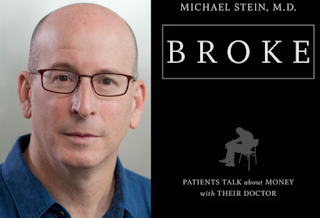 Regardless of whether you are for single-payer health insurance, fee for service, a hybridized French system, or the Affordable Care Act, what’s clear is that most of our health care system is broken. It’s left behind from the world of technology and creative destruction and it’s far too expensive.
Regardless of whether you are for single-payer health insurance, fee for service, a hybridized French system, or the Affordable Care Act, what’s clear is that most of our health care system is broken. It’s left behind from the world of technology and creative destruction and it’s far too expensive.
It’s a system that is broken, and that increasingly places barriers to entry for those without knowledge of the system or the poor without the financial resources to access it.
But what about the doctors that work in such a system. How does it impact them, many of whom wanted to practice medicine not social work. Dr. Michael Stein looks a this in Broke: Patients Talk about Money with Their Doctor.
Tuesday Dec 08, 2020
The Epic Rise and Spectacular Fall of Adam Neumann and WeWork
Tuesday Dec 08, 2020
Tuesday Dec 08, 2020
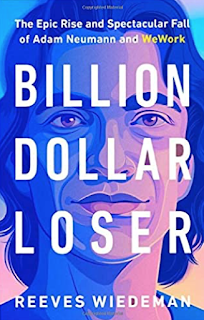 Every company has its foundational myth. Usually carved out of air by its founder. It becomes the basis of its culture, its marketing and its fundraising. However, often, the reality of running a business is much more mundane. It’s often separated from the myth.
Every company has its foundational myth. Usually carved out of air by its founder. It becomes the basis of its culture, its marketing and its fundraising. However, often, the reality of running a business is much more mundane. It’s often separated from the myth. Most people, even charismatic founders of companies can understand the difference. It's like what used to be said of political campaigns, that candidates campaigned in poetry and governed in prose. Sometimes though when the myth takes over the reality, trouble is not far behind.
Rarely has the foundational myth and a company's operations become as interconnected as they were with Adam Neumann and WeWork.
That’s the story that Reeves Wiedeman tackles in Billion Dollar Loser: The Epic Rise and Spectacular Fall of Adam Neumann and WeWork
Tuesday Dec 01, 2020
The Saudi Enigma - How Will Biden Deal With It?
Tuesday Dec 01, 2020
Tuesday Dec 01, 2020
 There was a time when we looked upon Saudi Arabia as the gas station to the world. Certainly to the US. At the time it generated fear and a lack of understanding. It’s tribal structure, our lack of knowledge about its history and the repeated failures of US policy in the Middle East all placed the kingdom beyond our comprehension.
There was a time when we looked upon Saudi Arabia as the gas station to the world. Certainly to the US. At the time it generated fear and a lack of understanding. It’s tribal structure, our lack of knowledge about its history and the repeated failures of US policy in the Middle East all placed the kingdom beyond our comprehension.
Its effort today to modernize both its culture and its economy, the US’s own confidence about oil independence and other dramatic geopolitical shifts have caused us to reassess the Saudi role in the world. At the same time, the murder of Jamal Kashogi and other human rights abuses have not helped. In short, Saudi Arabia still remains a great enigma. Trying to help us understand it is as a new administration must face another new policy is Saudi expert David Rundell, the author of Vision or Mirage: Saudi Arabia at the Crossroads.
My conversation with David Rundell:
Monday Nov 23, 2020
Monday Nov 23, 2020
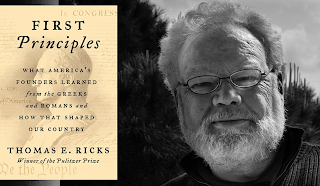 The past four years, really right up to this moment, have been a test for the American republic. Over and over we’ve heard it asked, “can our institutions hold, are the ideas and documents of the framers adequate for the modern age.”
The past four years, really right up to this moment, have been a test for the American republic. Over and over we’ve heard it asked, “can our institutions hold, are the ideas and documents of the framers adequate for the modern age.”
At the same time, we’ve heard over and over again since Nov. 8, 2016, how did we get here? What has driven us to such political and social division, to our appetite for authoritarianism, the disregard for norms, the rural-urban and the educational divide?
What ties all of these questions together is the idea that when faced with a complex sometimes unsolvable problem, it’s best to go back to foundational principles.
To deconstruct the enterprise and strip it to its original foundation to see how all of the problems have been layered on and how we might find meaning and/or solutions.
This is essentially what Pulitzer prize-winning journalist and another Tom Ricks does in his new work First Principles: What America's Founders Learned from the Greeks and Romans and How That Shaped Our Country
My conversation with Tom Ricks:
Monday Nov 16, 2020
A Dolly Parton Moment
Monday Nov 16, 2020
Monday Nov 16, 2020
Monday Nov 09, 2020
The Collapse of America's Founding Mythology
Monday Nov 09, 2020
Monday Nov 09, 2020
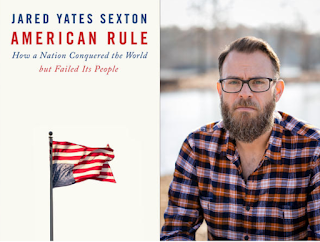 Every company has its foundational myth. From the beginning, it becomes the basis of the company’s culture, its marketing, and really its DNA. The same is true for nations. And perhaps not surprisingly no nation has done a better job of that mythology than the United States.
Every company has its foundational myth. From the beginning, it becomes the basis of the company’s culture, its marketing, and really its DNA. The same is true for nations. And perhaps not surprisingly no nation has done a better job of that mythology than the United States. From the ideas of manifest destiny to John Winthrop's shining city on the hill, from freedom and equality to American exceptionalism, these stories are not only foundational for Americans, but they run in the American bloodstream.
So what happens when it’s discovered that the myth and reality don’t match up? That the emperor has no clothes.
Ultimately, the myth is exposed, the wheels come off, the anger spreads, first internally and then outside and the enterprise usually collapses or morphs.
Arguably that’s what we’ve been living through today. The exposure and crumbling of the American myth. It explains the populist anger that brought Trump to power, as well as the anger on the other side that has fueled Black Lives Matter. When the myth is stripped bare, the company or the nation must be reinvested or die.
These ideas are at the heart of Jared Yates Sexton’s book American Rule: How a Nation Conquered the World but Failed Its People
Sunday Nov 01, 2020
Biden..We Hardly Knew Ye
Sunday Nov 01, 2020
Sunday Nov 01, 2020
Compare this to Ike, or Reagan, George HW Bush, or Lyndon Johnson all who arrived, for better or worse as fully formed political and human beings.
In this year’s election, policy aside, Joe Biden comes to us having lived a very long public life during which time he has grown into the person and politician he is today. Arguable, as a man who would become the nation’s oldest president it is fair to say that he is not still becoming.
While our presidential candidates seldom lack for position papers and policies, it’s who they are that ultimately determines if they have what it takes. Our vote for president is essentially a gut check vote about the man and the moment.
And sometimes, not always, but when we are lucky, the man and moment match up.
This is the question much of the nation is asking and answering about Joe Biden. After almost 50 years in the arena, it should be easy to answer. But amid all the clamoring, it takes work like the new book by National Book Award winner Evan Osnos to pull it all together in Joe Biden: The Life, the Run, and What Matters Now
Thursday Oct 29, 2020
Up Close and Personal with Ohio Senator Sherrod Brown
Thursday Oct 29, 2020
Thursday Oct 29, 2020
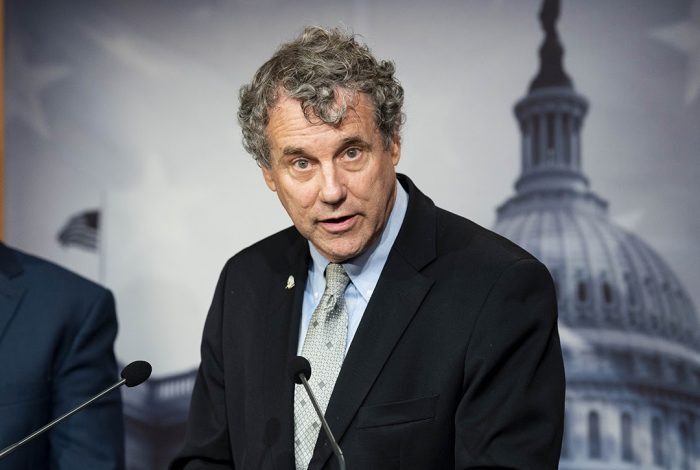 The United States Senate was once considered the world’s greatest deliberative body. As we witnessed in the first presidential debate, it’s entirely possible that honest debate in America is actually dead. And why should we assume that the US Senate is any different?
The United States Senate was once considered the world’s greatest deliberative body. As we witnessed in the first presidential debate, it’s entirely possible that honest debate in America is actually dead. And why should we assume that the US Senate is any different?
But rather than coming to mourn what once was, perhaps by summoning up the history of some of those senators who once infused the body with all that made it and the country great, we can almost by sheer force of will create an environment that might let it bloom once again. After all, isn’t that why we study history, why we visit monuments and capitals and museums. So that we might take with us, in some primal and visceral way, the inspiration of the best that came before and integrate it into doing good today?
In part, this is what US Senator Sherrod Brown, does in his new book, Desk 88.
My WhoWhatWhy conversation with Sen. Sherrod Brown
